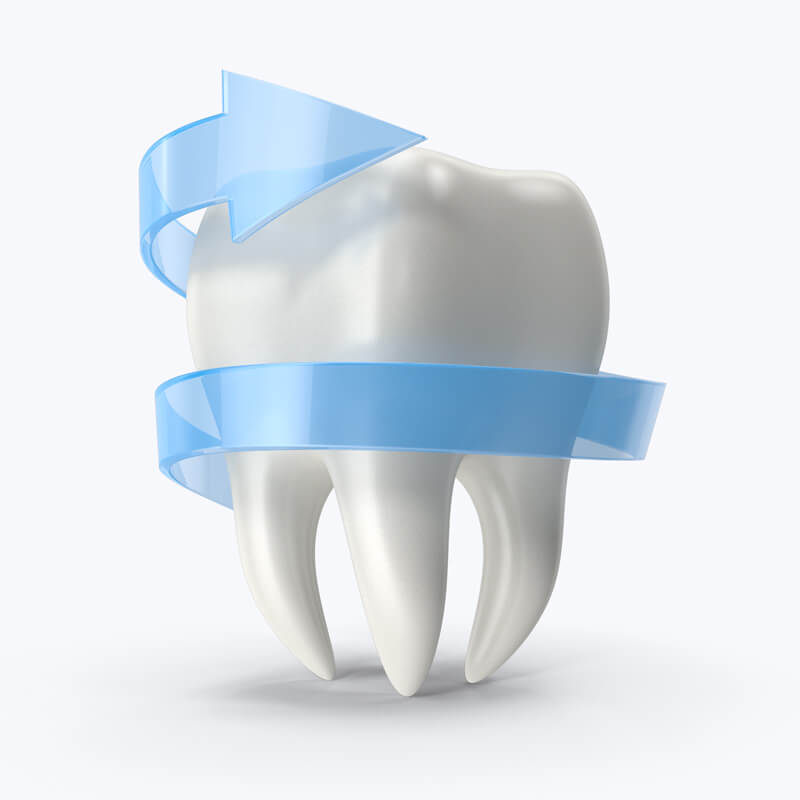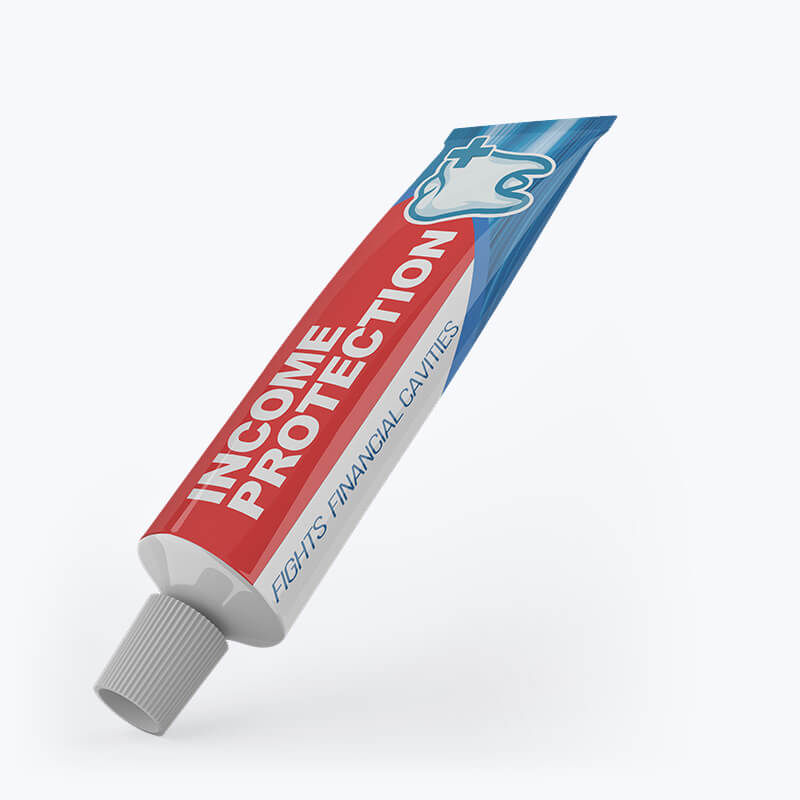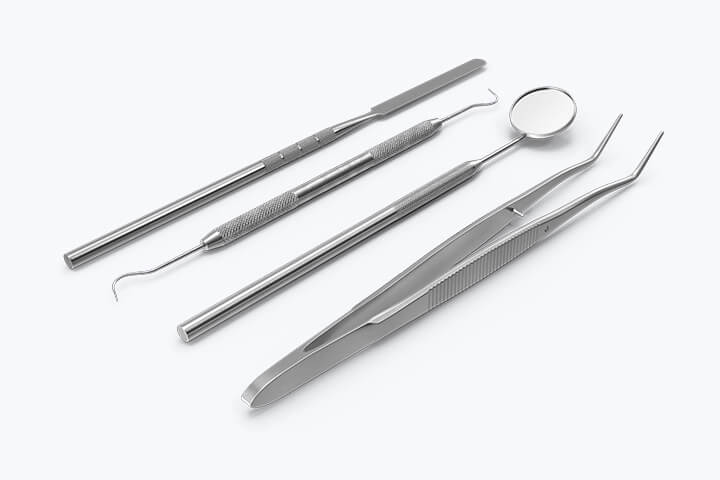
Income Protection for Dentists
Black Lion - Part of Movo H & L

Compare The UK's Top Insurers
Dentists’ Income Protection : Safeguarding Careers
A career as a dentist requires a significant investment of time, money, and effort. Years of education and training make dental qualifications a very valuable asset.
However, illnesses or injuries that prevent a dentist from practising can cause a cavity in their personal finances. An income protection policy can help offset some of these potential risks.
This article looks at the importance of income protection for dentists and some of the specific occupational considerations.
Table of Contents
Compare Top UK Insurers
What is Income Protection Insurance for Dentists?
Income protection insures dentists against illnesses or injuries that prevent them from practising. Policies pay a monthly benefit until the insured individual can return to work.
The monthly benefit is normally based on a percentage of the dentist’s earnings. It ensures funds are available to cover financial commitments and general living costs.
If the policyholder cannot return to work, the monthly benefit payments will continue until the policy’s cover ends. For a short-term policy, this may be only 1 or 2 years. Whereas long-term policies can provide cover until the policyholder reaches retirement age. In any event, should the policyholder die whilst a claim is in progress, the monthly benefit will stop.

Why do Dentists need Income Protection?
It doesn’t take much to temporarily keep a Dentist from practising. The General Dental Council (GDC) requires that all dental professionals be fit to practise.
Therefore many medical issues or physical injuries can stop a dentist from bringing home a monthly income. Worst still, there are many injuries or illnesses that can bring a premature end to a life’s ambition.
This is partially why Income Protection is so popular among dentists, orthodontists, and dental technicians.
Most dentists are protecting more than just a monthly salary. They are safeguarding a career. A result of years of hard work and significant financial investment.
The overall cost of becoming a dentist in the UK can easily exceed £100,000. And, with the time spent qualifying often five years or more, it’s prudent to protect against long-term health scenarios.
A suitable income protection plan can’t prevent these things from happening. But, it can at least help mitigate the financial trauma that a forced absence can cause.

Health Risks Dentists Face
Some examples of common issues that an income protection plan can cover:
- Musculoskeletal Injuries: Back, neck and shoulder issues are common among dental professionals. These are often caused by prolonged periods of bending over patients while providing care.
- Hand and Wrist Injuries: A dentist’s hands are one of their most crucial tools. Injuries to hands, wrists, or arms can severely impact their ability to perform dental procedures.
- Impaired Vision: Dentists need excellent vision in both eyes for their work. An eye injury or condition that impairs vision can often be career-ending.
- Stress-Related Conditions: According to the British Dental Association, almost half of dentists report excessive amounts of stress. Chronic stress can cause many other medical conditions which can prevent a dentist from being able to work.
- Serious Health Conditions: Conditions like Parkinson’s disease, MS or strokes are almost certain to end a dentist’s career.
How Much Does Dentist Income Protection Cost?
Additionally, there are various cover options that are adjustable. These options also have an effect on the cost of monthly premiums. For example, some of these are:
- Monthly Benefit: The monthly amount the policy will pay if the policyholder makes a valid claim. The greater the amount the higher the monthly premiums will be.
- Benefit Period: This is how long the monthly benefit will be paid for any claim. The duration can vary from 1 or 2 years to a specific time that aligns with retirement. Longer benefit periods result in higher monthly premiums.
- Deferred Period: This is the length of time a policyholder must be incapacitated before the monthly payments start. Longer deferred periods will result in lower monthly premiums.

Short-Term vs. Long-Term Policies
When considering income protection, it’s vital to know the difference between short-term and long-term policies.
Short-Term Income Protection
Short-term income protection typically covers a limited ‘Benefit Period’, usually up to two years. It’s good for covering lost income caused by short-term injuries or illnesses. These policies are often quicker to set up and require less underwriting during the application process.
But, it’s important to consider that a short-term plan may not be enough in many worst-case scenarios. Issues which prevent the policyholder from working are only covered for the duration of the benefit period (1 or 2 years). On the plus side, the premiums for short-term plans can be much lower than those for long-term policies.
Long-Term Income Protection
Lon-term protection is often the most popular among highly skilled professionals. With coverage from five years, or even until retirement age, it can help protect career investments. This is more suited to dentists who want protection against severe health problems that could end their careers.
This additional peace of mind also comes at a cost. The monthly premiums of a long-term plan can often cost twice as much as a short-term plan. The application process may also require more detailed medical underwriting.
What Does it Cover?
Income protection policies do not rely on a list of injuries or illnesses to define what is or is not covered.
Instead, all policies define how ill or injured the policyholder must be to make a valid claim. This is often referred to as the ‘incapacity level’ of the policy.
Own Occupation
‘Own occupation’ is one way that insurers can define incapacity. These policies payout if the policyholder cannot complete the core tasks of their profession.
This level of cover is the most popular option with dental professionals. If injury or illness prevents a dentist from practising, they will be deemed incapacitated. This is regardless of whether they could perform another occupation.

Suited Occupation
In contrast, ‘suited occupation’ cover may leave dentists vulnerable. If a career-impacting injury or illness occurs, this policy may not pay out. If the policyholder can still work in a role to which they are suited then they will not be considered incapacitated.
The scope of suited roles is generally based on previous education, training, and experience.
For a dentist, this could mean being classed as fit to work in a different role within dentistry. This could include roles which do not fully utilise their extensive training and qualifications. Since a job as a dental nurse or practice manager offers much lower pay, suited occupation plans are not a popular option with dentists.
Policy Exclusions
All policies will have various exclusions which will be clearly stated in the terms and conditions. Common examples of policy exclusions include.
- Pre-existing Conditions: Any health issues you had before the policy started may not be covered.
- Self-inflicted Injuries: Injuries you cause to yourself intentionally are typically not covered.
- Substance Abuse: Illnesses or injuries related to drug or alcohol abuse are often excluded.
- Dangerous Activities: Injuries from risky hobbies like extreme sports may not be covered.
- Criminal Activities: Injuries or illnesses resulting from illegal activities are usually not covered.
Employment Status: NHS or Self Employed?
Another important consideration for dentists is whether they work within the NHS or are self-employed.
NHS Dentists
For NHS dentists, employment often comes with a generous sick pay package. Depending on the length of service, this can be up to 26 weeks of full pay and may be followed by a period of half pay. Taking this into account, NHS dentists should have a policy that aligns with these entitlements.
Deferred Period: Some insurers have policies with deferred periods designed to meet the needs of NHS employees. These policies pay a top-up income during any period of half-pay and then increase the payout once this comes to an end.
Some policies also offer deferred periods that increase over time. This can be beneficial when sick pay entitlements increase with length of service.
Monthly Premiums: NHS dentists pay for income protection plans from their personal income.
Monthly Benefit: In the event of a claim, the monthly benefit paid by the insurer would be tax-free.
Self-Employed Dentists
The lack of NHS sick pay for self-employed dentists means their income protection needs are very different.
Those who operate their own practice may receive a large part of their income through dividends. Policies which offer income protection for company directors could be a good choice in such cases. These policies can cover the income from dividends (subject to terms and conditions).
Deferred Period: Self-employed dentists may need policies with shorter deferred periods. However, note that the shorter the deferred period, the more expensive the monthly premiums will be. A policy with a 90-day deferred period may cost 40% less than the same policy with a 30-day deferred period.
Premiums & Tax: With this type of policy the limited company is the policyholder and pays for the policy. In the event of a valid claim, the company receives any benefits from which they then pay the dentist. Premiums are often tax-deductible but any monies received from the policy will likely be taxed as revenue.
Getting A Quote
Choosing a suitable income protection plan can be confusing for any professional. Dental professionals have unique needs and should seek the help of a specialist broker. Black Lion Insurance can provide a range of quotes and offer the following services:
- Tailored Advice: Black Lion Insurance offers tailored advice based on an individual’s specific circumstances. As an FCA-regulated insurance advisor, Black Lion specialises in income protection.
- Comprehensive Selection of Insurers: Black Lion Insurance works with a wide array of the UK’s top insurers. Quotes can be provided for various policies, helping dentists find an excellent policy at a competitive price.
- Experience in Dentist Income Protection: The team at Black Lion Insurance understands the specific risks dentists face. Black Lion can provide tailored advice on the most suitable cover options, whether an NHS employee or self-employed.

About Us
Black Lion Insurance is a dedicated team of insurance consultants with years of experience in guiding our clients to a solution that meets their specific needs. We specialise in helping both employed and self employed individuals, as well as business owners on a variety of solutions, which range from income protection, keyman and shareholder protection insurance.

